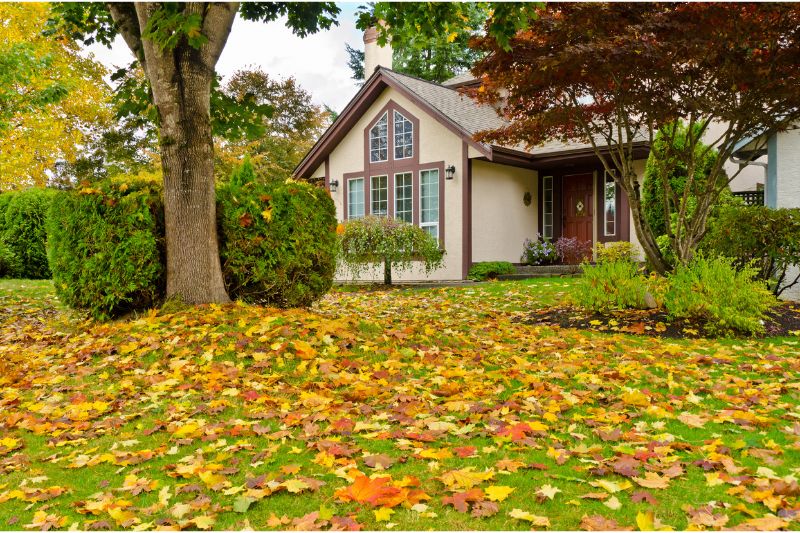Home for the holidays? Here’s how you can buy now and start paying in 2025…
Choosing Between a 15-Year and 30-Year Fixed-Rate Mortgage

Choosing Between a 15-Year and 30-Year Fixed-Rate Mortgage: Which Loan Term is Right for You?
When you’re selecting a mortgage, it’s essential to find the right loan term that aligns with your financial goals. Most home buyers in Raleigh, NC are familiar with the traditional 30-year fixed-rate loan, which spreads payments over a longer period with lower monthly payments. However, with interest rates at historically low levels, many buyers and homeowners looking to refinance are considering a 15-year fixed-rate loan as a potentially more cost-effective option. Each loan type has its advantages and disadvantages, and understanding these can help you make an informed choice. Let’s dive into the differences between these two popular mortgage options, and if you’re ready to explore your options further, Certified Home Loans is here to guide you with personalized advice and competitive mortgage quotes.
15-Year vs. 30-Year Fixed-Rate Mortgages: Understanding the Basics
Both 15-year and 30-year fixed-rate mortgages involve consistent monthly payments, covering a portion of the loan’s principal and interest, along with taxes and insurance (which may vary slightly each year). The primary difference is the loan term: a 15-year mortgage includes 180 payments, while a 30-year mortgage spans 360 payments. This means that a 15-year loan requires larger monthly payments to repay the principal in half the time, impacting your total interest costs, equity growth, and monthly budget.
For example, if you were to borrow $100,000, the monthly payments on a 15-year loan would be higher than on a 30-year loan, as you’re paying down the principal more aggressively. Now let’s examine how these differences affect interest rates and long-term costs. (Mortgage Calculators are HERE.)
Interest Rates and Loan Level Pricing Adjustments (LLPAs)
One significant benefit of a 15-year fixed-rate mortgage is its typically lower interest rate compared to a 30-year loan. Shorter-term loans present less risk to lenders because borrowers repay the loan in a shorter time frame, allowing lenders to offer lower rates. This can translate into substantial savings over the life of the loan.
Additionally, Conventional 15-year mortgages often avoid Loan Level Pricing Adjustments (LLPAs) set by Fannie Mae and Freddie Mac. LLPAs are risk-based fees applied to loans based on the borrower’s credit score, loan-to-value ratio, and property type. These adjustments are generally added to loans with terms over 180 months, like the 30-year loan, and can increase the overall interest rate or require upfront fees. By opting for a 15-year loan, qualified borrowers can bypass these extra fees, securing a more favorable rate and lowering their overall borrowing costs. This makes the 15-year loan an attractive choice for borrowers looking to maximize savings, particularly those with lower credit scores or smaller down payments.
Pros and Cons of a 30-Year Fixed-Rate Mortgage
The 30-year fixed-rate mortgage remains the most popular choice among homebuyers. Here’s a breakdown of its advantages and disadvantages:
Advantages:
- Lower Monthly Payments: With a 30-year term, monthly payments are lower, making homeownership more affordable and freeing up room in your budget for other expenses or investments.
- Higher Loan Amount Eligibility: Lower monthly payments may allow you to qualify for a larger loan amount, which can be beneficial if you’re looking for a larger home or a property in a higher-priced area.
Disadvantages:
- Higher Total Interest Costs: Since you’re paying over a longer period, the total interest paid over the loan’s life is higher compared to a 15-year mortgage.
- Slower Equity Growth: Because a smaller portion of each payment goes toward the principal, it takes longer to build equity in your home, which can impact your ability to tap into its equity later.
Pros and Cons of a 15-Year Fixed-Rate Mortgage
A 15-year fixed-rate mortgage is ideal for those looking to save on interest costs and build equity faster.
Advantages:
- Lower Interest Rates: The shorter term usually comes with a lower interest rate, reducing the total interest paid over the life of the loan.
- Faster Equity Accumulation: Since more of each payment goes toward the principal, you build equity faster, which can be a financial advantage if you plan to sell or refinance in the future.
Disadvantages:
- Higher Monthly Payments: Due to the shorter loan term, monthly payments are higher, which can strain your budget. Some borrowers may need to consider a smaller loan amount to keep payments manageable.
Key Considerations: How to Choose Between a 15-Year and 30-Year Mortgage
Selecting between a 15-year and 30-year mortgage depends on your financial situation, goals, and comfort with repayment.
- Financial Flexibility: If having lower monthly payments allows you to save or invest more, the 30-year loan may be advantageous. Many first-time homebuyers favor the 30-year term as it provides more flexibility with other financial commitments.
- Interest and Equity Priorities: If saving on interest and building equity quickly are priorities, and you can manage higher monthly payments, a 15-year loan could be ideal. This option is popular with those nearing retirement, refinancing, or wanting to pay off their mortgage sooner.
- Long-Term Plans: If you plan to stay in the home long-term, the interest savings and faster equity build-up of a 15-year mortgage are appealing. However, if you anticipate moving or selling within the next decade, a 30-year mortgage with lower monthly payments might make more sense.
Explore Your Mortgage Options with Certified Home Loans
Deciding between a 15-year and 30-year mortgage term involves careful consideration of your financial goals, current situation, and long-term plans. The good news? You don’t have to make this choice alone. Certified Home Loans offers personalized mortgage solutions tailored to your unique needs.
Thinking about refinancing or getting pre-approved for a home purchase? Contact Certified Home Loans today for a free mortgage consultation. Our team of experts will help you navigate your options, find the best loan program, and secure competitive rates to make your homeownership or refinancing journey smooth and affordable. Start building your future with confidence—reach out to Certified Home Loans now for a mortgage refinance quote or home purchase pre-approval!
Contact Certified Home Loans and let us help you choose the mortgage that is right for you!




